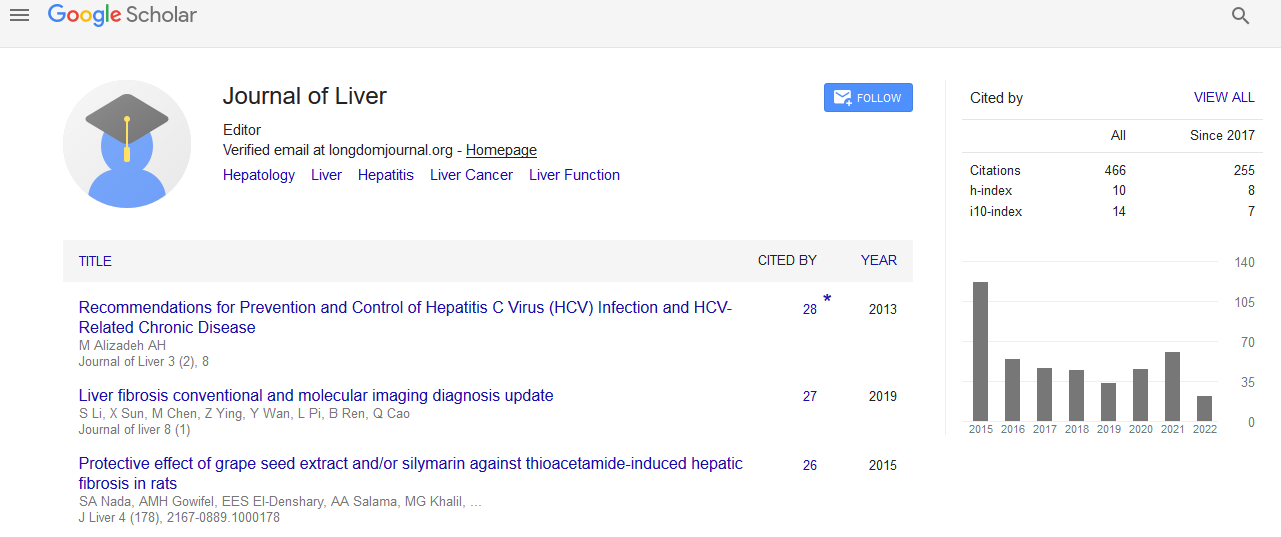PMC/PubMed Indexed Articles
Indexed In
- Open J Gate
- Genamics JournalSeek
- Academic Keys
- RefSeek
- Hamdard University
- EBSCO A-Z
- OCLC- WorldCat
- Publons
- Geneva Foundation for Medical Education and Research
- Google Scholar
Useful Links
Share This Page
Journal Flyer

Open Access Journals
- Agri and Aquaculture
- Biochemistry
- Bioinformatics & Systems Biology
- Business & Management
- Chemistry
- Clinical Sciences
- Engineering
- Food & Nutrition
- General Science
- Genetics & Molecular Biology
- Immunology & Microbiology
- Medical Sciences
- Neuroscience & Psychology
- Nursing & Health Care
- Pharmaceutical Sciences
Abstract
The p53 Codon 72 Polymorphism Modifies the Cellular Response to Inflammatory Challenge in the Liver
Julia I-Ju Leu, Maureen E Murphy and Donna L George
The p53 protein is a critical stress-response mediator and signal coordinator in cellular metabolism and environmental exposure to deleterious agents. In human populations, the p53 gene contains a common single nucleotide polymorphism (SNP) affecting codon 72 that determines whether a proline (P72) or an arginine (R72) is present at this amino acid position of the polypeptide. Previous studies carried out using human populations, mouse models, and cell culture analyses have provided evidence that this amino acid difference can alter p53 functional activities, and potentially also can affect clinical presentation of disease. The clinical presentation associated with many forms of liver disease is variable, but few of the responsible underlying genetic factors or molecular pathways have been identified. The aim of the present study was to investigate whether the p53 codon 72 polymorphism influences the cellular response to hepatic stresses. A humanized p53 knock-in (Hupki) mouse model was used to address this issue. Mice expressing either the P72 or R72 normal variation of p53 were given an acute-, intermittentor a chronic challenge, associated with exposure to lipopolysaccharide, D-galactosamine, or a high-fat diet. The results reveal that the livers of the P72 and R72 mice exhibit notable differences in inflammatory and apoptotic response to these distinct forms of stress. Interestingly the influence of this polymorphism on the response to stress is context dependent, with P72 showing increased response to liver toxins (lipopolysaccharide and D-galactosamine), but R72 showing increased response to metabolic stress (high fat diet). When taken together, these data point to the p53 codon 72 polymorphism as an important molecular mediator of events contributing to hepatic inflammation and metabolic homeostasis.

